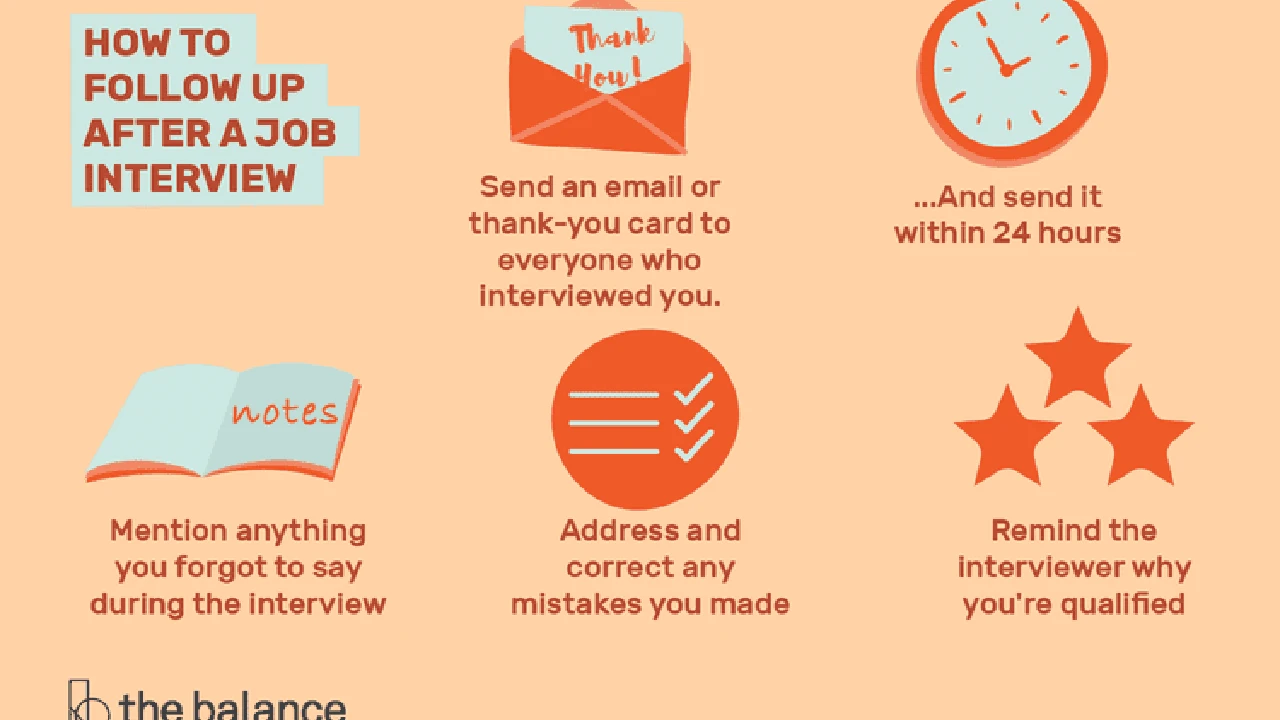The Power of Continuous Learning for Career Growth
Understand why continuous learning is vital for staying competitive and advancing your career.

The Power of Continuous Learning for Career Growth
Why Continuous Learning is Your Career Accelerator
Hey there, ever feel like the world is moving at warp speed? Especially in the professional realm? What was cutting-edge yesterday might be old news tomorrow. That's why continuous learning isn't just a buzzword; it's your secret weapon for career growth. Think about it: industries are evolving, new technologies are emerging, and job roles are constantly shifting. If you're not learning, you're falling behind. It's that simple. Embracing a mindset of lifelong learning keeps your skills sharp, your knowledge current, and your career trajectory on an upward climb. It’s about staying competitive, relevant, and, frankly, indispensable in a rapidly changing job market. Whether you're aiming for a promotion, a career change, or just want to be better at what you do, continuous learning is the fuel for your ambition.
Identifying Key Skills for Continuous Learning and Development
So, where do you even start with continuous learning? It's not about randomly picking up new hobbies. It's strategic. First, take a good look at your current role and your career aspirations. What skills are becoming more important in your industry? Are there any gaps in your current skillset that are holding you back? For instance, if you're in marketing, maybe data analytics or AI-driven content creation is becoming crucial. If you're in project management, perhaps advanced agile methodologies are the way to go. Soft skills are equally vital. Think about communication, emotional intelligence, critical thinking, and adaptability. These are evergreen skills that will serve you well no matter where your career takes you. A great way to identify these skills is to look at job descriptions for roles you aspire to, or talk to mentors and industry leaders about what they see as essential for future success. Don't forget to consider future trends too. What's on the horizon for your industry? Being proactive in learning these emerging skills can give you a significant advantage.
Top Platforms for Online Learning and Skill Acquisition
Alright, you've identified the skills. Now, how do you actually learn them? The good news is, we live in an age where knowledge is literally at your fingertips. Online learning platforms have revolutionized how we acquire new skills. Here are some of the top contenders, each with its own strengths and ideal use cases:
Coursera: University-Level Courses and Specializations
What it is: Coursera partners with universities and companies worldwide to offer a vast array of courses, specializations, and even full degrees. You're getting academic rigor combined with practical application. Think of it as bringing the university classroom to your living room.
Use Case: Ideal for those looking for structured learning paths, in-depth knowledge, and recognized certifications from reputable institutions. If you want to dive deep into a subject like 'Machine Learning' from Stanford or 'Digital Marketing' from the University of Illinois, Coursera is your go-to.
Comparison: More academically focused than some other platforms, often with peer-graded assignments and capstone projects. The certifications carry significant weight on resumes.
Pricing: Many individual courses are free to audit (meaning you can view lectures but don't get graded assignments or a certificate). Specializations and professional certificates typically range from $39 to $79 per month, or you can pay a one-time fee for a course, usually between $29 and $99. Coursera Plus, their subscription service, offers unlimited access to most courses for about $399 per year.
Udemy: Practical Skills and Diverse Topics
What it is: Udemy is an open marketplace for online courses, meaning anyone can create and sell a course. This leads to an incredibly diverse range of topics, from coding and web development to photography and even dog training. The focus is often on practical, hands-on skills.
Use Case: Perfect for learning specific, practical skills quickly. Need to learn Python for data analysis? Or perhaps master Adobe Photoshop? Udemy likely has a course for it. It's great for just-in-time learning or exploring new interests without a huge commitment.
Comparison: Less formal than Coursera, with varying quality due to the open marketplace model. However, user reviews and ratings help you find the best courses. Often more project-based and less theoretical.
Pricing: Courses are typically purchased individually, with prices ranging from $10 to $200, but Udemy is famous for its frequent sales where courses can be bought for as low as $9.99 to $19.99. There's no subscription model for individual learners, making it a good option if you only need a few specific courses.
LinkedIn Learning: Business, Creative, and Tech Skills
What it is: Formerly Lynda.com, LinkedIn Learning offers video courses taught by industry experts across business, creative, and technology categories. It's integrated with your LinkedIn profile, making it easy to showcase your newly acquired skills.
Use Case: Excellent for professionals looking to enhance their business acumen, creative skills (like graphic design or video editing), or tech proficiency. The integration with LinkedIn is a huge plus for career development and networking.
Comparison: High production quality and expert instructors. The courses are generally shorter and more focused than Coursera's specializations, making them great for busy professionals. Strong emphasis on practical, job-relevant skills.
Pricing: Primarily subscription-based, usually around $29.99 per month or $19.99 per month if billed annually. They often offer a free one-month trial. If you have a LinkedIn Premium subscription, LinkedIn Learning is usually included.
edX: Open-Source University Courses
What it is: Similar to Coursera, edX offers high-quality courses from top universities and institutions worldwide, often with a focus on STEM fields. It's a non-profit organization, emphasizing accessibility to education.
Use Case: Great for those seeking rigorous academic content, particularly in computer science, engineering, and data science. If you want to learn from MIT, Harvard, or Berkeley, edX provides that opportunity.
Comparison: Very similar to Coursera in terms of academic quality and structure. Often offers 'verified tracks' for a fee to get a certificate, or you can audit courses for free. Strong emphasis on open education.
Pricing: Many courses can be audited for free. To earn a verified certificate, prices typically range from $50 to $300 per course. They also offer 'MicroMasters' and 'Professional Certificate' programs which are more expensive but offer deeper learning.
Skillshare: Creative Skills and Project-Based Learning
What it is: Skillshare focuses heavily on creative skills, design, illustration, photography, writing, and entrepreneurship. It's known for its project-based learning approach, where you learn by doing.
Use Case: Ideal for creatives, freelancers, and anyone looking to pick up practical skills for personal projects or side hustles. If you want to learn how to illustrate, animate, or start an Etsy shop, Skillshare is a fantastic resource.
Comparison: Less formal than Coursera or edX, more community-driven. The focus is on short, actionable lessons that lead to a tangible project. Great for hands-on learners.
Pricing: Primarily subscription-based, around $165 per year or $32 per month. They often offer free trials for a week or a month.
MasterClass: Learning from the Best
What it is: MasterClass offers online classes taught by world-renowned experts in their respective fields – think Gordon Ramsay on cooking, Serena Williams on tennis, or Neil Gaiman on storytelling. It's more about inspiration and high-level insights than granular skill acquisition.
Use Case: For those seeking inspiration, unique perspectives, and insights from top-tier professionals. It's less about getting a certificate for your resume and more about broadening your horizons and learning from the masters.
Comparison: Very high production value, almost like a documentary series. Not a traditional skill-building platform, but incredibly engaging and motivating. Focuses on 'how' the masters think and approach their craft.
Pricing: Annual membership is required, typically around $180 per year for unlimited access to all classes. No individual course purchases.
Integrating Learning into Your Daily Routine for Career Advancement
Okay, so you know what to learn and where to learn it. But how do you actually fit it into your already packed schedule? This is where the rubber meets the road. Continuous learning isn't about finding huge chunks of time; it's about consistency and integration. Think micro-learning. Can you dedicate 15-30 minutes each day? Maybe during your commute, during lunch, or right before bed? Use that time to watch a lecture, read an article, or practice a new skill. Leverage podcasts and audiobooks for learning on the go. Set realistic goals – don't aim to complete a full specialization in a week if you only have an hour a day. Break down larger learning goals into smaller, manageable chunks. For example, instead of 'learn Python,' aim for 'complete one Python module this week.' Make learning a non-negotiable part of your routine, just like checking emails or going to meetings. Block out time in your calendar specifically for learning. Treat it like an important appointment. And don't forget to apply what you learn. The best way to solidify new knowledge is to put it into practice, whether it's through a personal project, a work task, or even teaching someone else. This active engagement makes the learning stick and directly contributes to your career advancement.
Measuring the Impact of Continuous Learning on Your Career Trajectory
So, you're putting in the effort, but how do you know if it's actually paying off? Measuring the impact of continuous learning isn't always as straightforward as a quarterly sales report, but it's definitely measurable. Look for tangible outcomes: Did you get that promotion you were aiming for? Did you successfully transition into a new role or industry? Are you taking on more challenging projects at work? Are you getting more recognition from your peers or superiors? Beyond the big wins, also look for subtle shifts. Are you feeling more confident in your abilities? Are you solving problems more efficiently? Are you able to contribute more meaningfully in meetings? Are you seen as a go-to person for certain expertise? Keep a learning journal or a simple spreadsheet to track the courses you complete, the skills you acquire, and how you apply them. This not only helps you see your progress but also provides concrete examples to discuss during performance reviews or job interviews. Remember, continuous learning is an investment in yourself, and like any good investment, it yields returns – often in ways you might not initially expect, opening doors to opportunities you never even considered.
Building a Learning Culture in Your Workplace
Continuous learning isn't just an individual responsibility; it thrives in a supportive environment. If you're in a leadership position, or even if you're not, you can advocate for and help build a learning culture in your workplace. This means encouraging curiosity, providing resources, and celebrating learning achievements. Companies that prioritize continuous learning often see higher employee engagement, better innovation, and improved retention. Consider suggesting internal workshops, lunch-and-learn sessions, or even a company-wide subscription to one of the platforms mentioned above. Create a shared knowledge base where team members can share resources and insights. Encourage mentorship and peer-to-peer learning. When learning is embedded in the company's DNA, it becomes a natural part of everyone's professional development, benefiting both the individual and the organization as a whole. It's about fostering an environment where asking questions, experimenting, and even making mistakes (and learning from them!) are not just tolerated but actively encouraged. This creates a dynamic, adaptable workforce ready to tackle future challenges.
Future Trends in Continuous Learning and Career Development
What's next for continuous learning? The landscape is always shifting. Expect to see even more personalized learning paths, driven by AI and machine learning, tailoring content specifically to your needs and career goals. Micro-credentials and digital badges will likely become even more prevalent, offering verifiable proof of specific skills without the need for a full degree. Virtual reality (VR) and augmented reality (AR) could revolutionize hands-on training, especially in fields like healthcare and engineering. Gamification will continue to make learning more engaging and fun. And the emphasis on soft skills, like adaptability, creativity, and complex problem-solving, will only grow as automation handles more routine tasks. Staying ahead means not just learning new skills, but also understanding how learning itself is evolving. Embrace these trends, and you'll not only keep your career on track but also become a leader in navigating the future of work.
:max_bytes(150000):strip_icc()/277019-baked-pork-chops-with-cream-of-mushroom-soup-DDMFS-beauty-4x3-BG-7505-5762b731cf30447d9cbbbbbf387beafa.jpg)






